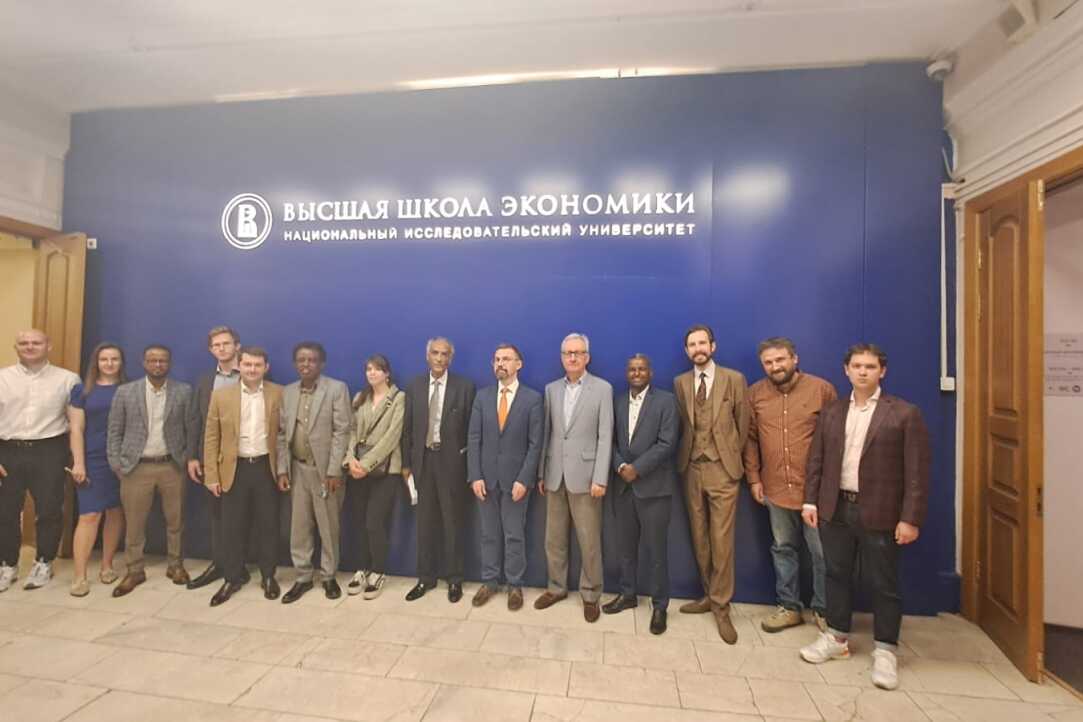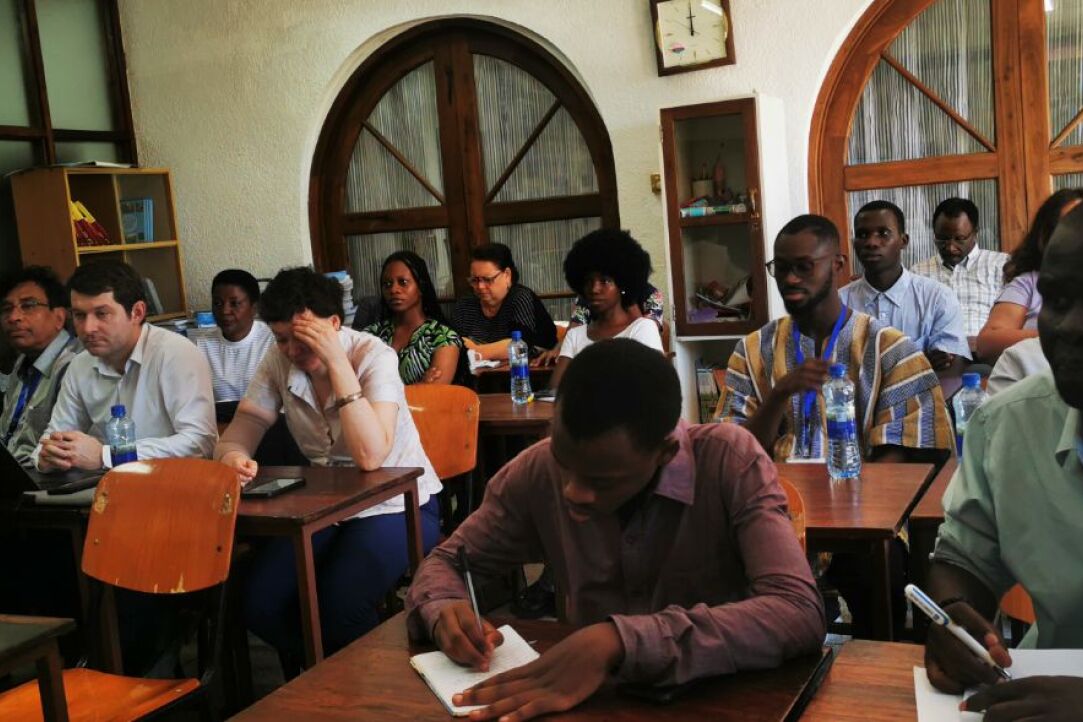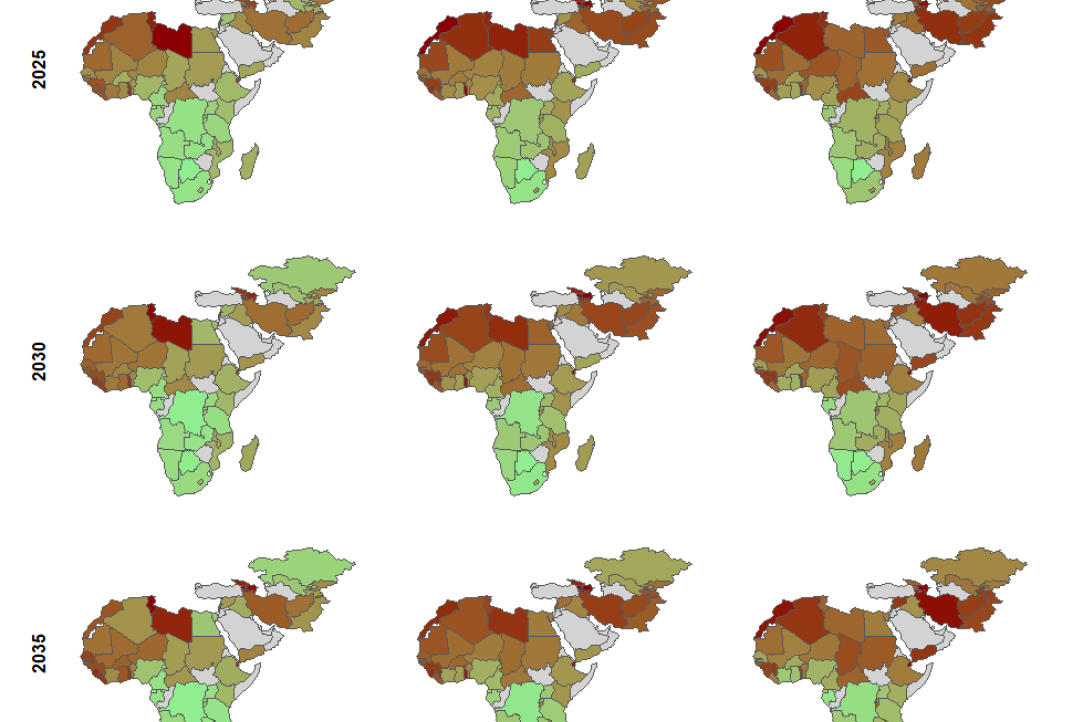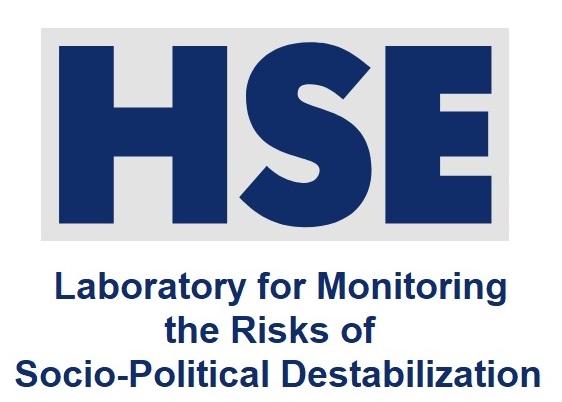The President of Russia awarded the title ‘Honoured Scholar of the Russian Federation’ to the scientific director of CSRA
According to the decree of the President Vladimir Putin issued 24.01.2025, Askar Akaev is honoured with a high award ‘for his contribution to training highly qualified specialists, scholars and teacher during many years of diligent work’.

Happy new year 2025!
The Centre for Stability and Risk Analysis presents the results of the working year and wishes everyone a Happy New Year 2025!

The scholars of the Centre for Stability and Risk Analysis of the Faculty of Social Sciences took part in the BRICS Academic Forum
Leonid Issaev and Andrey Zakharov took part in the BRICS Academic Forum, which was held in Moscow from 22 to 24 May. The main goal of the forum was to develop academic exchanges, strengthen dialogue between the governments and expert community of the BRICS countries, and develop recommendations for the heads of state.

A delegation from the Ethiopian Institute of Policy Studies visited the Faculty of Social Sciences.
On 23 June, the Faculty of Social Sciences hosted a round table ‘Federalism in Russia and Ethiopia: Origins, Development and Prospects’ with the participation of scholars from the Ethiopian Policy Studies Institute. The Ethiopian delegation was led by Professor Petros Beyene, Director of the Institute. He shared his experience of working in Ethiopia's Transitional Government in the early 1990s, which drafted the country's current constitution, which provides for a transition to a federal model. On the FSN side, First Deputy Dean Mikhail Mironyuk took part in the roundtable, noting the stabilising role of federalism in Russia in recent years.

Researchers from the CSRA spoke at an international conference in Tanzania
On March 1-3, the scholars of the Center for the Study of Stability and Risks Analysis (CSRA) and Saint-Petersburg School of Social Sciences HSE University took part in the international academic conference "The Place of Africa in the World: The Past and the Present" which was held in Dar es Salaam, Tanzania, at the Russian Center for Science and Culture. This conference was devoted to a wide range of research topics and brought together experts from various fields. Beside scholars from Russia and Tanzania, researchers from India, South Africa, Ghana, Nigeria and Holland presented their papers. The conference drew great attention of the Tanzanian academic community.
Andrey Korotayev's presentation at the conference of the International Big History Association (IBHA)
The CSRA director's report is entitled "Patterns of complexity growth in the Big History. A preliminary quantitative analysis". In his presentation, Andrey Korotayev talks about recent findings, namely about two patterns of how Big History is getting more complex. The first pattern is a slowdown in cosmic evolutionary development that had being taking place several billion years after the Big Bang. The second is the acceleration of biosocial development, which began on Earth about 4 billion years ago.
The brochure about the Center has been published!
The brochure contains basic information about the CSRA: history of origin, areas of activity, key achievements, publications, information about cooperation with educational programs, geography of expeditions and foreign partners.The brochure is of interest to both the HSE community and a wider audience.
.jpg)
CSRA took part in the celebration of the FSN's anniversary
On April 22, the Faculty of Social Sciences of the HSE celebrated its 9th anniversary. The Center for the Study of Stability and Risks became one of the participants in this event. At the site of the Center, one could learn about the history of our unit and its current activities, as well as try Arabic cuisine and participate in a quiz related to the CSRA research interests.
The section 'Library of the Center' is on the CSRA page now!
At the moment, the section presents books and monographs published with the participation of CISR researchers.

The Database of Revolutionary Events of the 21st century published on the Centre's website
The database provides a description of the revolutionary events of the 21st century including various characteristics: chronological, geographical, type of tactics of the protesters, purpose and degree of success. Also, based on the presented Database, the 'Atlas of Instability' has been made for the Afroasian (Afrasian) macrozone and for African states located to the South of the Sahel. It presents the risks of armed or non-violent revolutionary episodes for some countries from selected regions in long-term dynamics under three different scenarios - positive, inertial and negative.
The database is prepared as the part of the "Quantitative analysis and forecasting of the risks of socio-political destabilization in the countries of the Afroasian macrozone of instability" project under the support of the Russian Science Foundation (project No. 18-18-00254-P).

